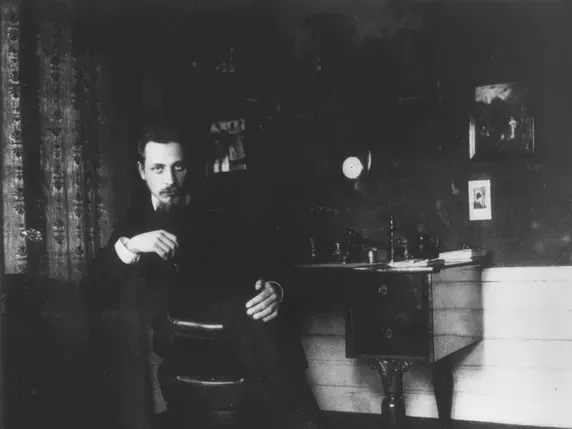Rainer Maria Rilke: Trust In What Is Difficult

The possibility of interruption and distraction is everywhere today, making true-blue “alone time” more difficult to find, and to endure, than ever before.
The possibility of interruption and distraction is everywhere today, making true-blue “alone time” more difficult to find, and to endure, than ever before. Thus, as we kick off our new “Creative’s Bookshelf” series, highlighting touchstone books for creative minds, Rilke’s Letters To A Young Poet – an almost spiritual paean to the artist’s need for solitude – seems an apt starting place.
Letters collects the ten missives sent by one of the greatest poets of the 20th century, Rainer Maria Rilke, to an aspiring writer and army lieutenant named Franz Kappus. “Being not yet 20 years old and barely on the threshold of a profession which [he] felt to be directly opposed to [his] inclinations,” Kappus wrote to Rilke in 1903 seeking his creative counsel.
Although Kappus initially wrote to request feedback on the quality of his poetry, Rilke had little interest in critiques. As he remarks in Letter 1, “Nothing touches a work of art so little as words of criticism: they always result in more or less fortunate misunderstandings.” Instead, Rilke uses the letters as an opportunity for a lofty meditation on how the artist cultivates great works. His advice is as relevant and sustaining today as it was more than a century ago.